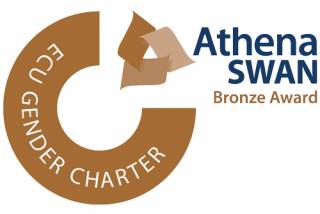Athletics must always have been an important part of Greek life. Regardless of the view we take of the historical value of the Homeric poems (and scholars are divided), the accounts we have of the competition of Tydeus at Thebes in the Iliad and of Odysseus in Phaeacia in the Odyssey are unintelligible unless we suppose that there were as early as the Greek geometric period frequent opportunities for competitive sport. And Homer, Hesiod the epic cycle attest the opportunities presented by funeral games, as do narrative cycles such as the funeral games for Pelias. But nothing suggests any high of formal organization and (as scholars have stressed) in some cases the impromptu nature of event and locale are emphasized. And nothing prepares us for the quantum leap which sport takes in the archaic period. It is in the sixth century BC that Greek athletics becomes fully institutionalized, when there is - almost literally - an explosion of athletic festivals. There is a seismic shift in Greek culture. The traditional dating for the foundation of the Olympic games is 776 BC. Nothing then seems to happen (except perhaps for occasional funeral games) for 200 years. And suddenly within about a decade in the first quarter of the sixth century BC three more festivals appear. The musical festival at Delphi is reorganized as the four-yearly Pythian games (586 or 582). The games at the Isthmus of Corinth in honour of Poseidon (582) and those at Nemea in honour of Zeus (573) are added as two-yearly festivals. Though the games are suddenly thrust into (our sense of) history, in reality there must have been a steady growth behind their emergence. What we are seeing looks like the product of a shift from local to regional to panhellenic competitions, and an increase in the degree of institutionalization of Greek contests. But even so the evolution must have been rapid.
These four festivals formed what the Greeks called the periodos, the circuit, and it was the goal of every serious athlete to win at all four and become what they called a 'circuit-winner', periodonikes. The word is late but the concept is there from the beginning, since our earliest athletic texts in listing victories place the greatest emphasis on the big four. From the sixth century onwards there is a steady increase in the number of festivals across the Greek world which claim international status (i.e. which were open to citizens from any state). By the middle of the fifth century there are dozens, by the Roman period probably hundreds. Inevitably they vary enormously in importance. Some like the Great Panathenaia of Athens try hard (but ultimately without success) to claim the same status as the big four. But none breaks into the circuit. Together however these games offer an enormous number of opportunities for an athlete to notch up victories. And for the aspiring athlete there were also always local exclusive to citizens and regional games which could be used as a training ground before attempting the big games.
" Homer Iliad 4.387-90 "Then, although he was a stranger, the horseman Tydeus did not fear at all, even though he was alone among many Cadmeians. He challenged them to an athletic contest, and he easily won all prizes; such an aid was Athena to him."
" Homer Iliad 6.207-8 "[My father] gave me many other commands and among them this, to always excel and distinguish myself among other men..."
" Homer Iliad 9.410-16 "For my mother, the silver-footed goddess, Thetis, told me that twofold fates bring me to my doom of death. If I stay and fight against the city of the Trojans, my return home is lost, but my glory will be eternal. If I go home to my beloved fatherland, my good fame is lost, but I will live for a long time, and my doom of death will not come soon upon me."
" Homer Iliad 12.322-8 "My good man, if, when we escaped from this battle, we were destined to live forever young and immortal, I would not be fighting among the first ranks nor would I be sending you to fight a battle that brings glory to men. But now, for in any case countless fates of death are waiting for us, from which a mortal man cannot escape nor run away, let's go and bring glory to someone else, or he to us."
" Homer Odyssey 8.158-64 To Odysseus Euryalos answered and quarrelled with him: "Truly, stranger, I do not compare you to a man experienced in contests, such as those taking place among men, but to a man who is accustomed to get on and off a benched ship, a captain of sailors who are also merchants, a man who is mindful of his cargo and is successful in exchanging his merchandise, a man devouring his profits. You do not seem to me like an athlete."
" Hesiod Works and Days 654-657 Then I crossed to Chalcis, for the games of warlike Amphidamas. His great-hearted sons appointed many prizes that had been stated publicly. There I say that I won with my song and took away a tripod with handles.
 Close
Close



